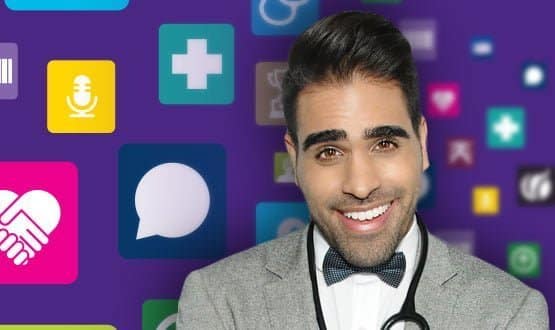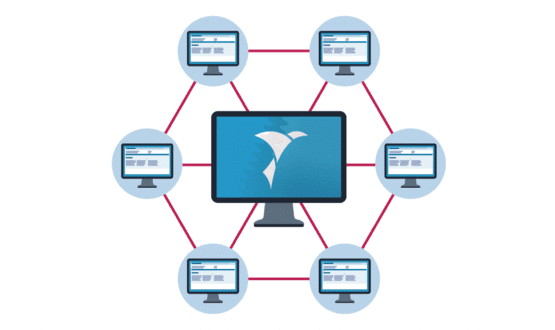EHI Live interview: Dr Ranj

It’s not often that EHI reporters find themselves listening to “The Poo Song” in the name of research. But type ‘Dr Ranj’ into a search engine and you, too, will find yourself on YouTube, humming this catchy ditty about constipation.
Questions and answers
Musical numbers like The Poo Song have made Dr Ranjit Singh a very popular presenter of the CBeebies programme ‘Get Well Soon’.
This uses a cast of puppet characters to teach children about common ailments and what to expect at the doctor’s. However, Dr Ranj is also a medic in real life.
He has degrees in medicine and pharmacology, trained at Guy's, King's and St Thomas' Hospitals School of Medicine, and now works as a paediatrician for a London hospital trust.
He is also a “self confessed geek” with an interest in computing and in how social media can be used to improve the level of care provided by NHS staff.
He has a Twitter account with more than 24k followers, a Facebook account with more than 6k likes; and those YouTube videos have been viewed more than 183,000 times.
This activity has helped him to promote another source of advice for children and young people; links to charities such as Youth Net, Young Minds and selfharm.co.uk that they might not find in other ways.
Dr Ranj will be talking about his work at EHI Live 2014 in November, where he will be one of the keynote speakers at the conference, and visiting the new social media village.
EHI asked him why he wanted to take part, for his top tips for using social media, and what the IT is like where he works:
You said in a recent interview that you were ‘a geek at heart’. How did that come about? What was the first IT gadget that you owned?
My ‘inner geek’ stems from a fascination about the way things work. I’ve had that scientific curiosity since I was a child. I was constantly taking things apart to work out what made them tick.
It got to such a point that my parents stopped buying me toys because I would end up taking them apart and they’d be useless! They soon realised that probably wasn’t a good idea when I then dismantled the TV remote!
My first computer was a Sinclair ZX Spectrum 48K, which my uncle taught me how to program in BASIC. I was soon hooked and was creating simple programs. My love of computers has grown ever since, although I can’t program at all now!
You’re best known for your TV show, ‘Get Well Soon’, but you also run a lot of social media. How do the two work together?
I must confess, I’m a bit of a social media addict. I started using Twitter as a bit of fun initially and it was a friend (Dannii Minogue) who told me to use it as a platform for useful medical tips/tricks for parents and families.
As I did more media work like Get Well Soon, my Twitter following increased and the stream became more popular – not just as a platform to promote the shows I’m involved in, but also as a general health promotion tool. I also have a public profile on Facebook which has content closely related to my Twitter feed.
I do like to use social media for more light-hearted stuff too, so I have Instagram, Pinterest and Vine accounts, all of which I use for fun! I think it’s important to have that balance.
I sometimes think that healthcare professionals take themselves too seriously. I always say that the primary aim of social media is to be social – so don’t be scared to show some personality for crying out loud!
How are mainstream and social media changing the relationship between healthcare staff, children and their families?
Media in general is an excellent health promotion tool. You can get really good information out to a vast amount of people and really get them to engage and be empowered. Modern and social media build on this and allow you to develop a greater rapport with people, which helps you engage them better.
However, if you are going to use it as such a tool, you have to use it responsibly. That means carefully considering the information you put out and being prepared to respond appropriately to any reactions, good or bad!
Would you like to see more NHS staff using social media to improve care?
Social media is so influential and has such massive potential that it would be foolish for us to ignore it. Every healthcare organisation should either have a social media presence or at least an appreciation of it. It’s a new way of working and a routine part of everyday life now.
There is some excellent health promotion, medical education, intellectual discourse and signposting going on – and that is all fantastic as it serves to really improve care.
However, it does, and should, have its limits. For instance, I don’t think it is the right platform to diagnose and treat because of its inherent limitations. That may change in future, but for now we should concentrate on how we can harness it as it is. The possibilities are really exciting.
What would be your top tip? And the biggest pitfall to avoid?
My top tip would be to not take yourself too seriously. Yes, be responsible in your role on social media, but remember it is social media. People really do appreciate some personality so don’t be afraid to show it!
Some of the best Twitter accounts I have seen are by people who show a very human side, even though they may have very high profile jobs. That personal tough not only serves to engage your audience better, but increases the size of your audience – and that’s exactly what you want.
So you’ll often find my social media has ‘work’ stuff as well as some silly nonsense thrown in for good measure!
However, at the same time, be aware that social media gives a very false sense of proximity or familiarity. Getting the balance between being personable or approachable, yet maintaining a sensible boundary can be difficult. So be very aware of your boundaries, what you put out and how you might come across.
When you’re not on screen, you work as a paediatrician in a London trust. What’s the IT like where you work? What would be the first thing on your wish-list to make it better?
I have worked in several hospitals in and outside London, and am currently in a busy central London trust. Throughout my time in various places I have seen many good, and bad, aspects of NHS IT.
Good systems are clear, user-friendly, functional and relevant to the environment in which they are employed. Bad systems are clunky, cluttered, counter-intuitive and really do have a detrimental effect on care.
The first thing I would personally do is simplify and streamline clinical systems – every trust does not need a different system and those systems do not need to do everything under the sun.
NHS IT does not have to be complicated – it needs to be fast, functional, aesthetically-pleasing and easy-to-use. Let’s take a leaf out of Apple’s book!
The social media village is a new feature of EHI Live 2014. It is being set up to help Tweeters, bloggers, LinkedIn users and others to collaborate over how social media can help the NHS, citizens and patients alike.
Dr Ranj will be appearing at the village, while the well-known #wenurses Twitter community will be running an advice clinic for those new to social media – or looking to use it better.
This year’s show takes place at the NEC in Birmingham from 4-5 November, and registration is open now. Visit the EHI Live 2014 website for details.





